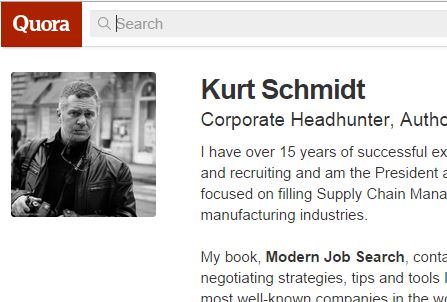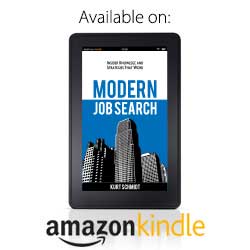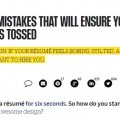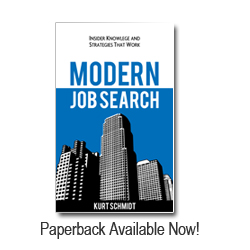
Quora: What career path should a college student take to become a recruiter?
By Kurt Schmidt In Blog On March 14, 2017
Quora Question: What career path should a college student take to become a recruiter?
To become a recruiter in the technology industry, what path should a college student take when leaving college? What skills are important, and what sort of interview preparation should one take? Thanks!
*************
The first question to ask is “What kind of recruiter do you want to be?” I am an “external recruiter.” I am the president and owner of my own executive search firm and work on a contingency and retained basis for my clients, who are primarily Fortune 100 energy and manufacturing companies. I frequently work with “internal recruiters” who are either employees or contractors hired by my clients and paid hourly wages or a salary.
There is a big difference between “external” and “internal” recruiters. As an external recruiter, my job is to proactively and aggressively work to identify, source, screen and submit candidates. I work on just a few jobs at a time and do a lot of research and networking to actively find and engage potential candidates. Then I “package” my candidates and submit them to my clients – often directly to internal recruiters.
The internal recruiters I know typically manage more jobs than me but don’t or can’t do the kind of proactive searching and networking that I do. Their jobs seems to be more passive – sorting through resumes that come in via advertisements, referrals and external recruiters and setting up interviews.
Many of the internal recruiters I know tried to be external recruiters but couldn’t make it, either because of the risk involved with commission work or the stress that comes with it.
Being an external recruiter means accepting that you will fail most of the time. Some people can’t deal with that. In contrast, when I succeed and make a placement, the commission I earn is usually well worth it. The trick is consistency.
That said, many of the external recruiters I know, myself included, couldn’t be or wouldn’t want to be internal recruiters. In my own case, I am not interested in “office work” or “office politics,” and am not cut out for largely administrative tasks. I am a hunter by nature so I enjoy the hunt and the reward of making a placement. I also like to make my own rules.
This is something you’ll have to learn about and figure out on your own. The good news is that you can switch from “internal” to “external.”
How did I become a recruiter?
I got my first recruiting job with a firm at the age of 24. I had no relevant experience whatsoever and was literally part of an experiment conducted by the owner of an established executive search firm. My first boss, Clark, the owner of the firm and a former VP at GE, had six other headhunters on staff, five of which were seasoned corporate veterans who left their management jobs to go into headhunting in order to slow down and make some money. The sixth headhunter was my predecessor and Clark’s first successful experiment – a young guy right out of college. Clark’s idea was to develop and train a pair of fresh college graduates with no other experience to see if they could make it – and in turn bring more energy to the firm. In his view, the corporate veterans were great but they lacked the hunger that recent graduates could bring.
I was hired on full commission and given a draw of $1000.00 per month to live on. Needless to say, I starved for more than a year before I figured out the business. By “starved” I mean to say that I worked +70 hours per week, every week, took no vacation or breaks and busted my a$$ to figure out the job while barely paying my rent and living on Ramen noodles. The thing that kept me going was seeing the $20k commission checks that the others earned regularly. By the end of my second year I was out-earning my college class peers. By the end of my third year I owned a Porsche 911. Before the end of my fourth year I started my own company and billed $50k in my first quarter (with a 96% profit margin).
I’ve done other things in between being a headhunter. I was a partner in a software service company (sold), a consultant and even a day trader (briefly). Earlier this year I published a book, Modern Job Search (Amazon.com: Modern Job Search: Insider Knowledge and Strategies that Work eBook: Kurt Schmidt: Kindle Store), that details not only how you (and everyone else) should execute their job searches but also a lot of the “secrets” that have made me a good headhunter.
The bottom line is persistence. My work is hard. Like I said, I fail most of the time – we all do. However there is a balance between “risk” and “reward” that remains alluring.
To your question: You don’t necessarily need experience to become a headhunter. However, no matter how you do it, there will be a price to pay.
If you go “internal” you should look for an internship in an HR department with a company you like or within an industry that interests you. Once there, you’ll need to figure out which “discipline” you like and want to work in. Specialization is key because to be effective you really need to know your jobs, clients and industry.
If you go “external,” first, save up your money because if you’re on commission, you’ll need some savings! Next, find some headhunters, owners of firms or even franchise owners and seek their advice. Use LinkedIn. We’re all on it. Then demonstrate a willingness to take wild risks and work like crazy and one of them might take a chance on you. Even though it is a commission job, anyone who hires you is still spending their time to train and develop you so it is risky for them too.
I hope that helps. Good luck!
Follow me on Quora for more answers to your questions. And if you want, fire off your own question!
*****************
Kurt Schmidt is the author of “Modern Job Search” and the President and Owner of Capto Systems, an executive search firm focused on supply chain and strategic sourcing jobs in manufacturing and energy. He’s also an aspiring photographer and traveler. If you’re really looking for a job, you need this book!








